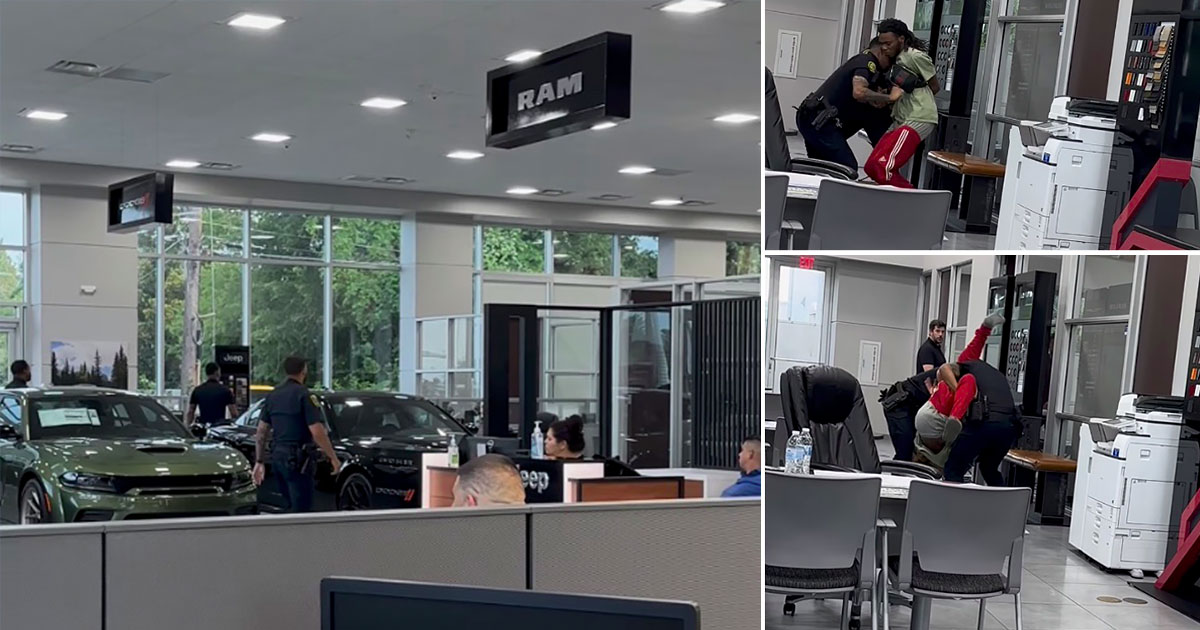Hellcat Widebody Fraud Attempt That Went Very Wrong

The Hellcat Dream and the Desperate Scheme
In the world of car enthusiasts, the Hellcat Widebody stands as a symbol of power, speed, and raw American muscle. With its aggressive stance, widened fenders, and monstrous engine, it’s a dream car for many. However, not everyone can afford such a beast, and some resort to desperate measures to get behind the wheel. This is the story of one such attempt that went spectacularly wrong in Houston, Texas.
The Fraudulent Attempt
It all started like any other day at the dealership. Salespeople were busy with customers, the showroom was buzzing with excitement, and the Hellcat Widebody sat gleaming under the lights, tempting every passerby. Among the customers that day was a man who seemed particularly interested in the Hellcat. He walked around it, admiring its curves, and eventually approached a salesperson to discuss financing options. The customer, however, had a trick up his sleeve. Instead of using his own social security number for the credit check, he decided to use someone else’s. He provided the dealership with the stolen information, hoping to drive away with the coveted Hellcat. This wasn’t an isolated incident; identity theft in car purchases is a known issue, with many fraudsters getting away with it. But this time, things took an unexpected turn.The Alert
As the dealership began processing the credit check, an alert was triggered. The person whose social security number was being used, let’s call him John Doe, received a notification that his information was being run for a large purchase. John, an astute individual, immediately realized something was amiss. He had no intention of buying a Hellcat, let alone being in Houston at that time. Concerned and confused, John quickly contacted the dealership to report the fraudulent activity.The Confrontation
When John called the dealership, he was connected to a manager. He explained that his social security number was being used without his permission and that he wasn’t the person at the dealership. The manager, now alerted to the potential fraud, approached the customer who had provided the information. The customer, sensing trouble, tried to maintain his composure, but the manager’s questions became more pointed. The dealership’s staff had seen their share of fraud attempts and were well-versed in spotting inconsistencies. The customer’s story began to unravel, and he was asked to wait while the manager “verified some details.”The Unraveling
During the wait, the dealership contacted local authorities, who arrived promptly. The customer, realizing the gravity of the situation, made a last-ditch effort to escape but was intercepted by the police. He was arrested on the spot, and further investigation revealed that he had a history of using stolen identities to make purchases. John, the rightful owner of the social security number, was relieved that the situation was handled quickly. He later expressed his gratitude to the dealership and the police for their swift action. The dealership, on the other hand, used this incident to bolster their fraud detection measures and to train their staff on handling such situations more effectively.Lessons Learned
This incident in Houston highlights several critical points for car enthusiasts and industry professionals alike. First, it underscores the importance of vigilance in protecting personal information. John’s quick response to the notification prevented what could have been a significant financial loss and a long, arduous process of clearing his name. For dealerships, it’s a reminder of the ever-present risk of fraud and the need for robust verification processes. The dealership’s swift action in this case not only prevented a crime but also reinforced their reputation as a trustworthy business.The Broader Impact
While this particular fraud attempt was thwarted, it’s important to acknowledge that many others succeed. Identity theft remains a pervasive issue, with countless victims facing the repercussions of someone else’s criminal actions. The automotive industry, like many others, is a prime target for such crimes due to the high value of the purchases involved. Dealerships are continually evolving their security measures, employing advanced technology and training staff to recognize red flags. Customers, too, must remain vigilant, monitoring their credit reports and being cautious about where they share their personal information.A Cautionary Tale for Enthusiasts
For car enthusiasts, the allure of owning a high-performance vehicle like the Hellcat Widebody can sometimes overshadow common sense and ethical considerations. This story serves as a reminder that cutting corners or resorting to fraud is never the answer. The consequences of such actions can be severe, including criminal charges, financial ruin, and a tarnished reputation. Instead, enthusiasts should focus on legitimate ways to achieve their dreams, whether through saving, financing, or other legal means. The satisfaction of owning a dream car is far greater when it’s obtained through honest efforts.Conclusion
The story shared by Alejandro Magana, aka htx.v3, is a stark reminder of the risks and realities of identity theft in the automotive world. It’s a tale of a desperate attempt gone wrong, swift justice, and the importance of vigilance. For car enthusiasts and industry professionals alike, it serves as both a cautionary tale and a call to action to protect personal information and maintain integrity in the pursuit of automotive dreams. As the world of high-performance cars continues to evolve, so too must the measures to protect against fraud. By staying informed and proactive, both individuals and businesses can help ensure that stories
Ad

